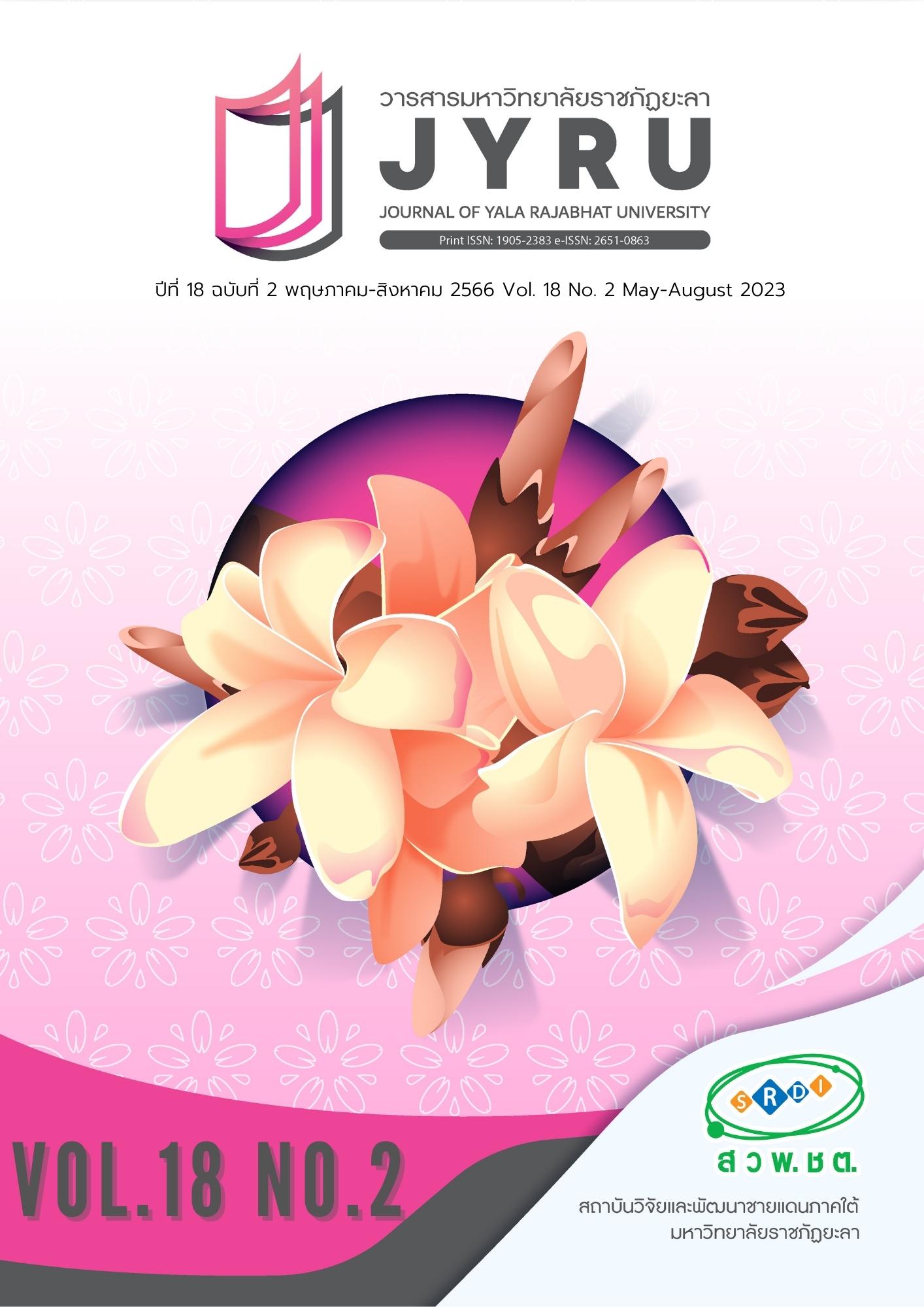ทฤษฎีการสรุปอ้างอิงความน่าเชื่อถือของผลการวัด : แนวคิดและการประยุกต์ใช้การวิจัยทางการศึกษา
Main Article Content
บทคัดย่อ
บทความวิชาการนี้มีวัตถุประสงค์เพื่ออธิบายแนวคิด หลักการทฤษฎีการสรุปอ้างอิงความน่าเชื่อถือของผลการวัด และอธิบายการประยุกต์ใช้ทฤษฎีการสรุปอ้างอิงความน่าเชื่อถือของผลการวัดทางวิจัยการศึกษา โดยนำเสนอเนื้อหาหลักออกเป็น 3 ส่วน คือ แนวคิดทฤษฎี การวิเคราะห์สัมประสิทธิ์การสรุปอ้างอิง และการประยุกต์ใช้ทฤษฎีการสรุปอ้างอิงความน่าเชื่อถือของผลการวัดกับการวิจัยทางการศึกษา ซึ่งทฤษฎีการสรุปอ้างอิงความน่าเชื่อถือของผลการวัด เป็นทฤษฎีที่ใช้วิเคราะห์ความน่าเชื่อถือของผลการวัดในสถานการณ์ของการวัดลักษณะต่าง ๆ ที่เป็นเป้าหมายของการนำเครื่องมือไปใช้ ซึ่งเป็นทั้งวิธีการประเมินที่น่าเชื่อถือหรือความเที่ยงของเครื่องมือและกลยุทธ์ของการออกแบบการวัดให้ผลของการวัดมีความน่าเชื่อถือ หรือมีความเที่ยงสูงถึงระดับที่ต้องการ เพื่อนำผลไปใช้เป็นสารสนเทศสำหรับการตัดสินใจอย่างมีประสิทธิภาพ
Article Details

อนุญาตภายใต้เงื่อนไข Creative Commons Attribution-NonCommercial-NoDerivatives 4.0 International License.
บทความ ข้อมูล เนื้อหา รูปภาพ ฯลฯ ที่ได้รับการเผยแพร่ในวารสารมหาวิทยาลัยราชภัฏยะลานี้ ถือเป็นลิขสิทธิ์ของวารสารมหาวิทยาลัยราชภัฏยะลา หากบุคคลหรือหน่วยงานใดต้องการนำทั้งหมดหรือส่วนหนึ่งส่วนใดไปเผยแพร่ต่อหรือกระทำการใดๆ จะต้องได้รับอนุญาตเป็นลายลักษณ์อักษรจากวารสารมหาวิทยาลัยราชภัฏยะลาก่อนเท่านั้น
เอกสารอ้างอิง
Atilla, Y. & Ezel, T. (2010). The examination of reliability according to classical test and generalizability on a job performance scale. Educational Sciences: Theory & Practice, 10(3), 1847-1854.
Cronbach, L. J., Gleser, G. C., & Rajaratnam, N. (1963). Theory of generalizability: A liberalization of reliability theory. British journal of mathematical and statistical psychology, 16, 137-173.
Cronbach, L. J., et al. (1972). The dependability of behavioral measurement. New York: John Wiley.
Gebril, A. (2010). Bringing reading-to-write and writing-only assessment tasks together: a generalizability analysis. Assessing Writing, 15(2), 100-117.
Donmuang, P. (2018). The construction of adversity quotient with buddhist scale for the vocational students. MBU Education Journal : Faculty of Education Mahamakut Buddhist University, 6(2), 210-224. (in Thai)
Janprasert, B. (2017). Alignment between national and classroom science test items: an application of many-facet rasch measurement and generalizability theory. STOU Education Journal, 11(2), 70-85. (in Thai)
Kanjanawasee, S. (2020). Modern test theoryies (5th ed.). Bangkok: Chulalongkorn University Printing House. (in Thai)
Nuntapanich, R. (2013). A comparison of the mathematics problem-solving diagnostic tests based on meta-cognition knowledge approach and meta-cognition knowledge with experience approach: generalizability theory. Journal of Education Graduate Studies Research Khon Kaen University, 7(4), 26-33. (in Thai)
Phadungphon, S. (2016). Comparison of reliability of modified essay question test for measuring the abilities in using scientific method in physics under different numbers of event and rater: an application of generalizability theory. An Online Journal of Education, 12(4), 381-393. (in Thai)
Praserthlap, M. (2015). Reliability comparison of likert scales on attitude with different rating scales between classical test theory and generalizability theory. Silpakorn Educational Research Journal, 7(2), 249-258. (in Thai)
Sanguanwai, C. (2015). Comparison of test reliability for measuring mathematics creative problem solving abilities: application of generalizability theory. An Online Journal of Education, 11(4), 743-760. (in Thai)
Srikaew, D. (2014). Development of an English speaking skill assessment model for grade 6 students by using portfolio: an application of multivariate generalizability theory. Procedia Social and Behavioral Sciences, 191(2015), 764-768. (in Thai)
Umnacil, M. (2014). Comparison of reliability of modified essay question test for measuring scientific problem solving ability using different scoring methods under different numbers of event : an application of generalizability theory. An Online Journal of Education, 10(1), 459-473. (in Thai)


